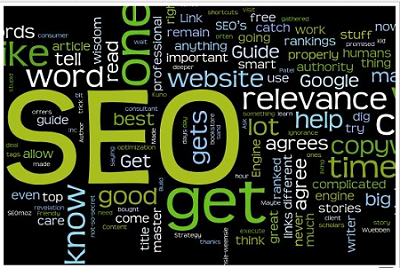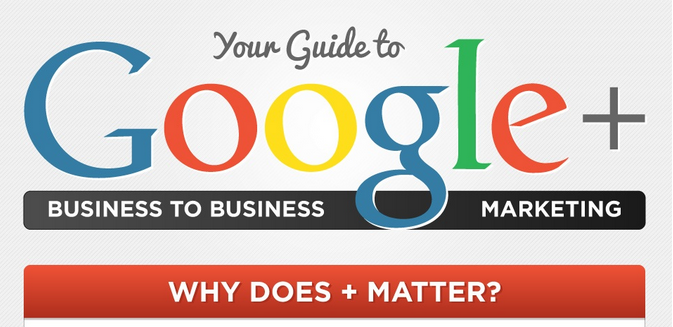Why SEO Still Matters - Even In 2015
By Jaco Grobbelaar on Wed, Mar 04, 2015 @ 03:20 PM
 "Build It (With Good SEO) and They Will Come."
"Build It (With Good SEO) and They Will Come."
Back in December 2014, LinkedIn released their top 25 job skills of 2014. These jobs are based on what recruiters look for using the LinkedIn platform.
Jay Baer of Convince and Convert said recently that, “What I found particularly interesting was that the number 5 job skill for LinkedIn in 2014, based on recruiter searches, was SEO and paid search.”
So, despite the shrill predictions that SEO is “dead”, businesses are willing and wanting to invest in data analysis and search expertise. In fact, because the number five most sought after professional skill by recruiters in 2014 is SEO and paid search, it is apparent that SEO is alive and well – just a bit different again.
Baer goes on to state, “You know what companies still really care about? Traffic to their website…” And this is true for you, as well.
What About Keywords?
Despite the continual changes in Google’s algorithms and their shifting emphasis on meaning and intent, keywords are still crucial for SEO.
Google still needs some type of content, or text, to determine what your company actually does. However, the actual terms are simply used now for Google’s analysis, and less for establishing a quantifiable relationship and impact on your search rankings.
Because of this shift in emphasis, where you place your keywords matters far more than how often they appear in your content. Inserting a relevant keyword in the title tag of your site and one time in the header will have more “juice” than inserting it four or five times in the body of your post. This is because Google analyzes your site by key areas. The higher priority areas are the meta information and headers. Your content’s body, or written, copy is seen as secondary in importance, with any side bars and footers after that.
According to Jayson DeMers, founder & CEO of AudienceBloom, “It’s important to have some description for your company in those high-priority areas — the meta data and header — but you shouldn’t necessarily hone in on one specific keyword phrase. Otherwise, your site could grow repetitive, and earn a penalty instead of a high ranking.”
So, yes, keywords still matter in SEO, but primarily because of where they are placed and less so for their frequency.
Google Is Looking for Meaning
Google’s approach to keywords has changed somewhat dramatically over the recent years. Now, when Google scans your site, it does not simply note the relevant keyword phrases and pair them to search queries. There is an additional step involved. DeMers says, “Google interprets the data on your website, and begins to form its own conclusions about what your site and your business really deliver. If that seems a little spooky to you, you aren’t alone — Google is becoming exceptionally sophisticated.”
In fact, according to Google, their approach of deriving meaning from the synonyms of keywords accounts for up to 70 percent of searches.
How Does This Relate To Your Website?
A recent article at Creative Search Strategy noted that, “ Google wants to find the INTENT and meaning behind a consumer’s search query, and whilst the language being used in these searches is still relevant, you’ll want to target the words you use to reflect semantic searches.”
In other words, your web pages cannot simply be a vehicle for posting a particular keyword or phrase; it must have content that is valuable and relevant to your audience. And this is especially true now that Google has become increasingly focused on meaning and semantic queries.
In addition, freshness counts! One of the long-standing and powerful keys for SEO still applies: publishing fresh and original content will keep traffic finding and coming to your sites. And, while this can possibly be overdone, increased volume of fresh content will score well with Google. According to HubSpot, businesses publishing anywhere from 401 to 1000 pages get six times more leads than those with only 51 to 100 pages.
The Final (Key) Word
Jay Baer states that, “The tactics used in search engine optimization have changed (again), based on shifts in how search engines rank content. But that doesn’t mean the skill of SEO isn’t needed. In fact, I’d argue that it’s needed more than ever. Because when everyone is creating content, somehow you’re going to need to get that content seen, and search optimization (organic or paid) is perhaps still the best way to do so.”
So what does this mean for you? That SEO is still a critical and essential component of your overall marketing efforts. And having the rights skills and resources in place to ensure that your SEO strategy is up to date is essential, as well.
While technology will continue to change organic search and the need to be found remains.
If you are ready to learn more about SEO and inbound marketing we would love to sit down with you for a Complimentary Inbound Marketing Session. During this session we will help you to "dig" into your goals and identify what is stopping you from achieving your goals.
With that out of the way we'll discuss inbound marketing and what you can do to use it to grow your business. Call BroadVision Marketing at 707-799-1238 or click the orange button below for your complimentary inbound marketing strategy session.
You May Also Like
These Related Stories

Another Keyword Article about Google Hummingbird and SEO Part 2

Infographic: What are Google's 200 Ranking Factors for SEO?

.png?width=302&height=75&name=BVM%20Logo%20-%20transparent%20(1).png)


No Comments Yet
Let us know what you think